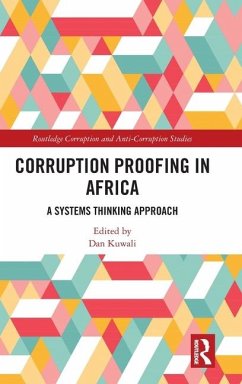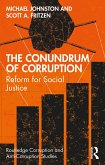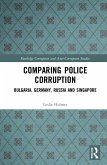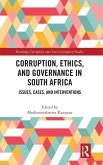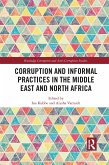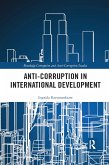This book outlines evidence-based and data-driven strategies for combating grand corruption in Africa.
Although the causes of corruption vary from country to country, this book suggests that corruption in Africa is often a direct consequence of poorly conceived legislation, policies, and institutional loopholes. The authors in this solution-oriented book converge in arguing that effective strategies to combat corruption (corruption proofing) should integrate an independent enforcement system, vigilant civil society, vibrant media, and political leadership. Utilising empirical evidence and a systems thinking approach, the contributors also uncover root causes of corruption and identify high-leverage interventions to prevent abuse of entrusted power for personal gain. The book recommends an integrated proactive strategy that includes top-down, bottom-up, and multi-stakeholder approaches in the implementation of anti-corruption legislation and policies. Bringing together multidisciplinary and transdisciplinary research, the chapters in this volume include case studies from selected countries on the continent, including Cameroon, Kenya, Malawi, Namibia, Uganda, and Zimbabwe.
Providing readers with a range of effective and functional initiatives in combating corruption in Africa, this book will be of interest to students and researchers of corruption, governance, ethics, peace and security, development, and African studies, as well as policymakers, practitioners, development partners, among other stakeholders.
Although the causes of corruption vary from country to country, this book suggests that corruption in Africa is often a direct consequence of poorly conceived legislation, policies, and institutional loopholes. The authors in this solution-oriented book converge in arguing that effective strategies to combat corruption (corruption proofing) should integrate an independent enforcement system, vigilant civil society, vibrant media, and political leadership. Utilising empirical evidence and a systems thinking approach, the contributors also uncover root causes of corruption and identify high-leverage interventions to prevent abuse of entrusted power for personal gain. The book recommends an integrated proactive strategy that includes top-down, bottom-up, and multi-stakeholder approaches in the implementation of anti-corruption legislation and policies. Bringing together multidisciplinary and transdisciplinary research, the chapters in this volume include case studies from selected countries on the continent, including Cameroon, Kenya, Malawi, Namibia, Uganda, and Zimbabwe.
Providing readers with a range of effective and functional initiatives in combating corruption in Africa, this book will be of interest to students and researchers of corruption, governance, ethics, peace and security, development, and African studies, as well as policymakers, practitioners, development partners, among other stakeholders.

